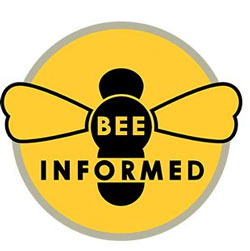 The latest report from the Bee Informed Partnership (BIP), in collaboration with the Apiary Inspectors of America (AIA) and the U.S. Department of Agriculture (USDA) is good news for beekeepers in their efforts to improve the health of their colonies in the United States.
The latest report from the Bee Informed Partnership (BIP), in collaboration with the Apiary Inspectors of America (AIA) and the U.S. Department of Agriculture (USDA) is good news for beekeepers in their efforts to improve the health of their colonies in the United States.
An estimated 21.1% of colonies managed were lost over the 2016-2017 winter, representing an improvement of 5.8 percentage points compared to the previous winter and falling well below the 10-year average total winter loss rate of 28.4%. It’s the lowest winter loss rate since these surveys began.
“Beekeepers, farmers, businesses, and NGOs have made tremendous progress supporting honey bee health. These results show movement in the right direction, but more collaboration and broad-based strategies are needed to further reduce overwintering losses,” said Julie Shapiro, facilitator of the Honey Bee Health Coalition.
Dick Rogers, Principal Scientist and beekeeper for the Bayer Bee Care Program in North America, says this is great news for everyone who cares about bee health. “We are not out of the woods, but there is a reason for optimism, given the industry’s commitment to protect these vital pollinators,” said Rogers. Bayer is a member of the Honey Bee Health Coalition and supports efforts to improve pollinator health through a number of initiatives including Feed a Bee and Healthy Hives 2020.
